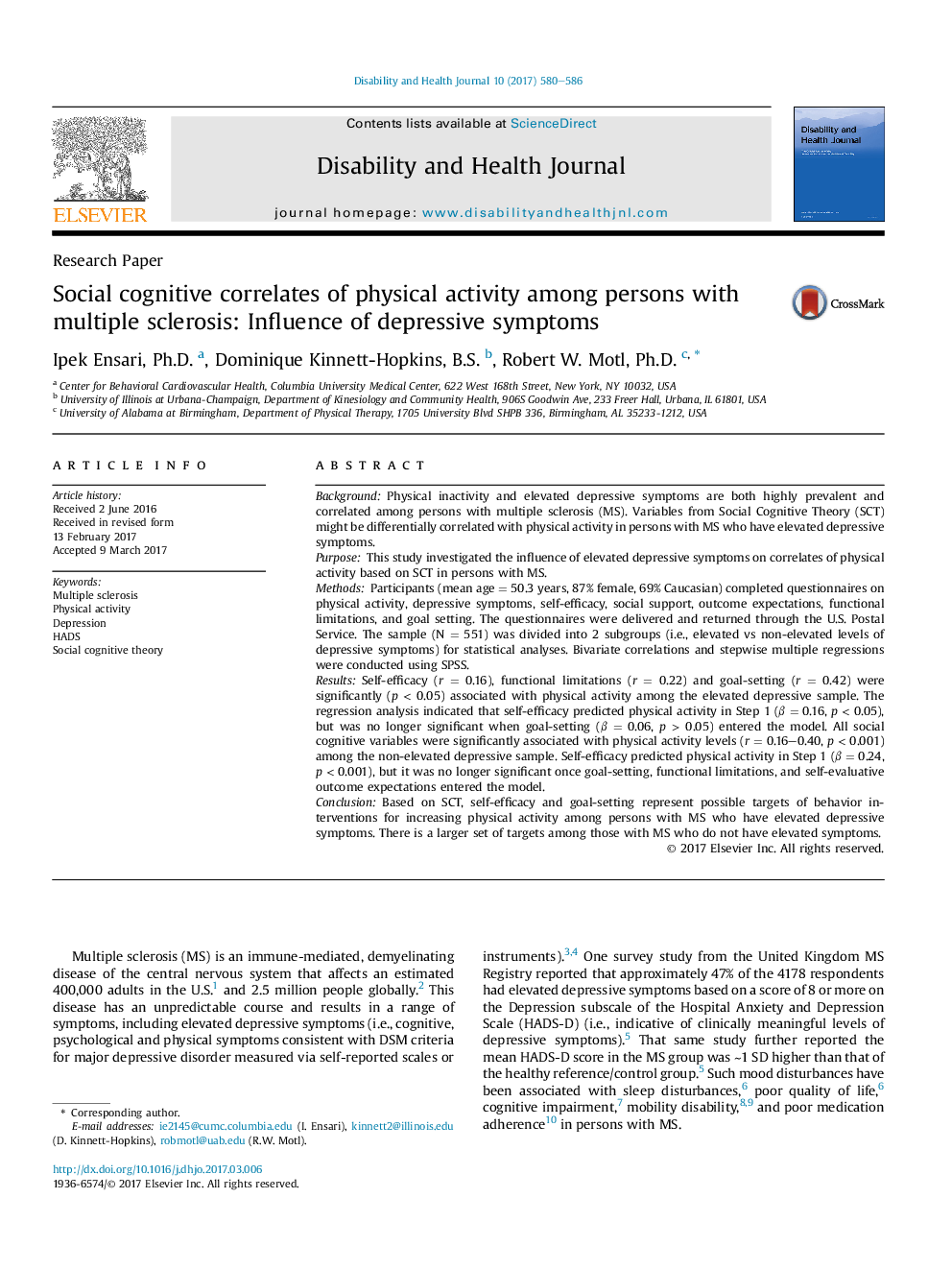| کد مقاله | کد نشریه | سال انتشار | مقاله انگلیسی | نسخه تمام متن |
|---|---|---|---|---|
| 5723174 | 1608982 | 2017 | 7 صفحه PDF | دانلود رایگان |
BackgroundPhysical inactivity and elevated depressive symptoms are both highly prevalent and correlated among persons with multiple sclerosis (MS). Variables from Social Cognitive Theory (SCT) might be differentially correlated with physical activity in persons with MS who have elevated depressive symptoms.PurposeThis study investigated the influence of elevated depressive symptoms on correlates of physical activity based on SCT in persons with MS.MethodsParticipants (mean age = 50.3 years, 87% female, 69% Caucasian) completed questionnaires on physical activity, depressive symptoms, self-efficacy, social support, outcome expectations, functional limitations, and goal setting. The questionnaires were delivered and returned through the U.S. Postal Service. The sample (N = 551) was divided into 2 subgroups (i.e., elevated vs non-elevated levels of depressive symptoms) for statistical analyses. Bivariate correlations and stepwise multiple regressions were conducted using SPSS.ResultsSelf-efficacy (r = 0.16), functional limitations (r = 0.22) and goal-setting (r = 0.42) were significantly (p < 0.05) associated with physical activity among the elevated depressive sample. The regression analysis indicated that self-efficacy predicted physical activity in Step 1 (β = 0.16, p < 0.05), but was no longer significant when goal-setting (β = 0.06, p > 0.05) entered the model. All social cognitive variables were significantly associated with physical activity levels (r = 0.16-0.40, p < 0.001) among the non-elevated depressive sample. Self-efficacy predicted physical activity in Step 1 (β = 0.24, p < 0.001), but it was no longer significant once goal-setting, functional limitations, and self-evaluative outcome expectations entered the model.ConclusionBased on SCT, self-efficacy and goal-setting represent possible targets of behavior interventions for increasing physical activity among persons with MS who have elevated depressive symptoms. There is a larger set of targets among those with MS who do not have elevated symptoms.
Journal: Disability and Health Journal - Volume 10, Issue 4, October 2017, Pages 580-586
